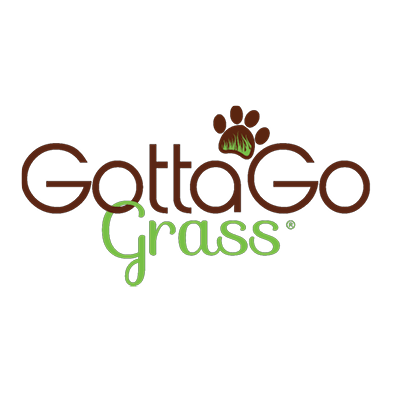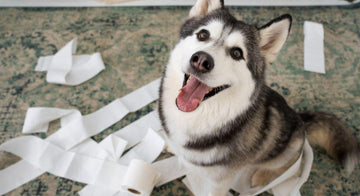
As a dog owner, one of the less glamorous responsibilities is dealing with dog poop, whether it's picking up after them on walks or cleaning up the occasional indoor accidents.
Other than cleaning up after your dog, you probably don't give much thought to the frequency or regularity of their bowel movements. However, paying attention to how often your dog poops can provide valuable insights into their overall health. Changes in your dog's bathroom habits can indicate underlying issues that may require attention from your veterinarian.
Why Should You Pay Attention to Your Dog's Poop?
We have previously created a guide on what your dog's poop is telling you about their health. While various factors can influence their bowel movements, significant changes in stool appearance or bathroom habits should be a cause of concern.
In general, healthy poop for dogs should be firm yet moist. Dry stool in dogs can be a sign of dehydration, while loose stools can indicate various underlying issues such as digestive problems, parasites, or stress and anxiety.
By monitoring your dog's bathroom patterns—observing the appearance of their stool and how often they go—you can stay proactive about their well-being. This practice allows you to detect potential health problems early and take the necessary steps to address them.
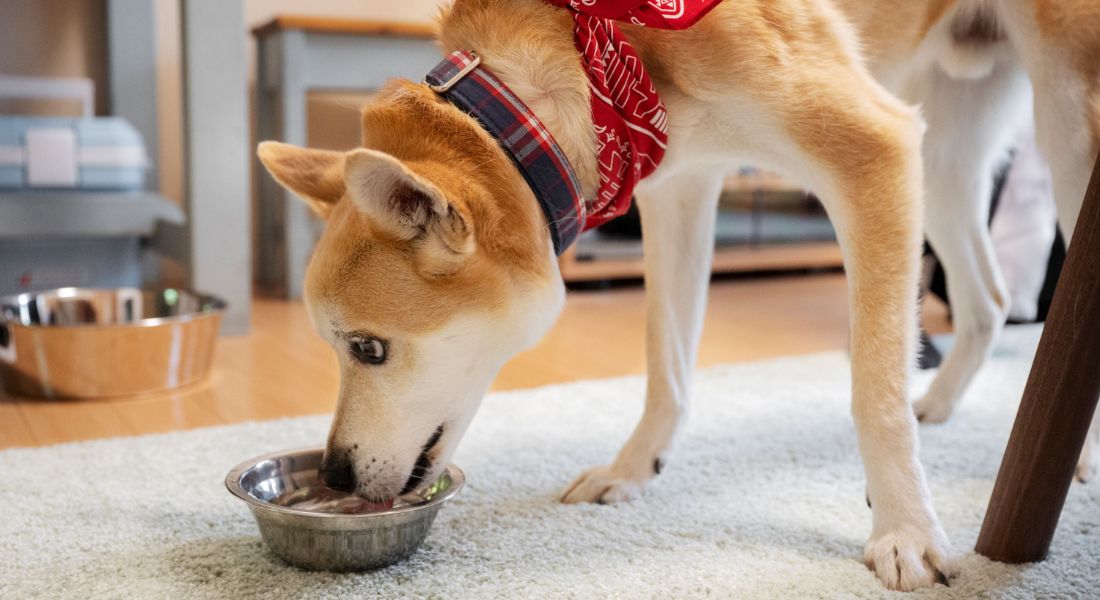
A Ruff Estimate: How Often Should Dogs Poop?
How often a dog poops can vary by size, diet, age, and other factors like their diet, activity level, and overall health. Once a day is standard, though some healthy dogs can go up to four times daily.
Size: Smaller dog breeds generally have smaller digestive systems and may require more frequent bathroom breaks than larger breeds. They poop at least two or three times per day, but four times is still considered normal. This explains why smaller dogs can benefit more from an indoor grass pad for dogs to reduce accidents. Meanwhile, larger breeds naturally have larger digestive systems and can go longer without relieving themselves. On average, they poop once a day, but two to three times a day can still pass as normal.
Diet: The more a dog eats, the more they will need to poop. The size and timing of their meals can also influence how often they go to the bathroom. Moreover, the type of food can affect digestion and poop consistency. A diet with healthy fiber intake helps regular your dog's poop schedule, preventing digestive issues like constipation and diarrhea.
Age: Puppies have small bladders and usually eat several meals a day as they grow and develop rapidly at this age. This results in more frequent bowel movements, at least three times daily. Contrarily, senior dogs tend to poop less often, sometimes only once a day. They may also go the occasional day without a potty break, which can be attributed to their sedentary lifestyle, decreased appetite, and less efficient digestion.
Other Health Factors that Affect Your Dog's Poop Schedule
Your pet's overall health can also influence their bowel movements. For example, a sudden change in their bathroom routine may be a symptom of underlying health issues like constipation, gastroenteritis, or more serious problems.
Certain pet medications can cause mild stomach upset in dogs, resulting in increased or decreased bowel movements. More severe reactions, such as vomiting and diarrhea, can also occur, often accompanied by a lack of appetite.
Additionally, stress or anxiety in dogs can lead to an upset stomach, leading to changes in their digestive system, including more frequent bowel movements or changes in stool consistency.
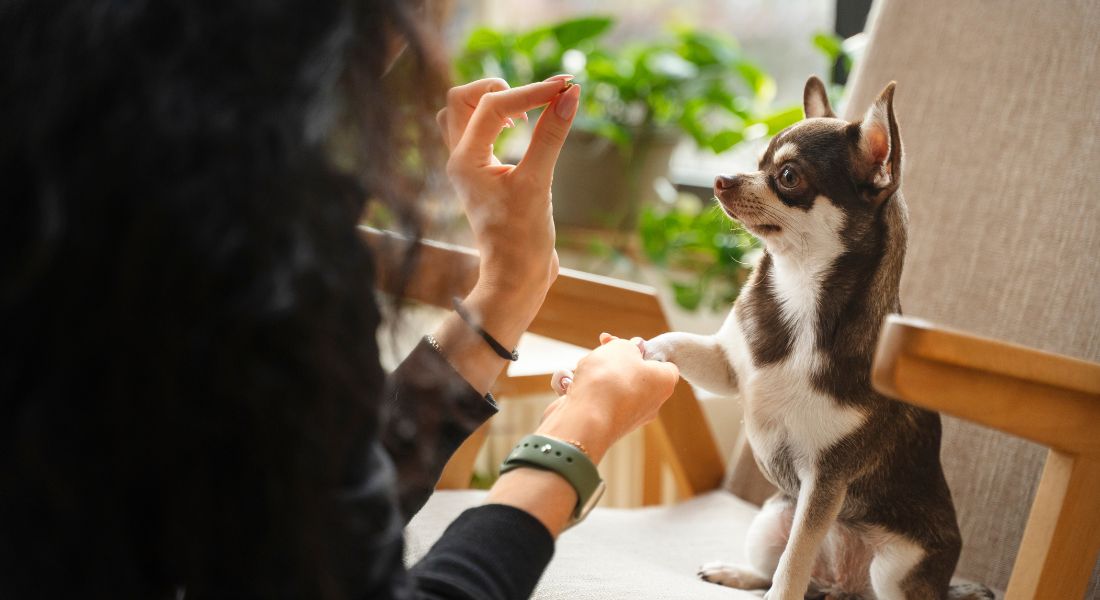
How Long Does it Take for a Dog to Poop After Meals?
Most adult dogs usually poop within thirty minutes to an hour after eating. As pet parents, these times are ideal for walking or exercising your dog. Puppies and younger dogs, however, may need to go sooner than older dogs, often within thirty minutes after a meal. Feeding schedules and portion sizes can also influence poop frequency. Dogs fed two smaller meals a day digest their food faster and may have to poop sooner.
Of course, dogs have different schedules, so you'll have to establish a routine that works best for your dog. It usually takes dogs 8-12 hours to digest a meal fully and relieve themselves.
My Dog is Pooping Too Much—Why?
If your dog typically has frequent bowel movements, going several times a day may be normal. However, if they suddenly start going more often without any changes in their diet or routine, or if it seems urgent every time they need to go, there may be an underlying medical issue such as stress, anxiety, or a medical problem.
If your dog is experiencing diarrhea or loose, watery stools and is going multiple times in an hour, contact your vet immediately. This could be a sign of a more serious health issue.
Why Your Dog is Not Pooping
Similar to frequent pooping, infrequent pooping can also indicate a health issue in dogs, which can become serious if left untreated for too long. It's normal if your dog skips a poop occasionally without any signs of straining. However, if your dog is regularly straining to poop without passing any stool or if the stool appears firmer and drier than usual, they may be constipated.
Constipation in dogs can be as uncomfortable as diarrhea and may be caused by various factors such as:
- Changes in dog's diet or allergies
- Stress or anxiety due to unfamiliar or changes in surroundings
- Worms or parasites in the digestive system
- Diseases such as inflammatory bowel disease (IBD) or colitis, which cause inflammation in the intestines
If you are concerned about your dog's irregular bowel movements, it's advisable to consult your veterinarian for guidance.

When to Consult Your Vet
While the occasional missed poop or extra poop shouldn't raise concern, any sustained change in your dog's bathroom habits warrants evaluation. Various factors, including diet, exercise, stress, household schedule, and overall health, can influence how often dogs poop.
If your dog has had diarrhea for two or more days or has not had a bathroom break in the last 24 hours, consult your veterinarian. Also, pay attention to the color and consistency of your dog's poop. Healthy dog poop should be brown, moist, and slightly firm. If you notice anything unusual or concerning about their stool color, odor, or consistency, discuss it with your vet.
So, How Often Should Dogs Poop?
There's no strict rule as to how often dogs should poop, but your dog's bathroom breaks should be fairly consistent and suitable for their lifestyle. If you observe changes in your pup's pooping habits or stool quality, pay attention to their overall health and behavior.
Untreated digestive issues can be painful and uncomfortable for your dog, leading to more serious health problems. Properly identifying and treating underlying health issues is crucial for your dog's well-being.
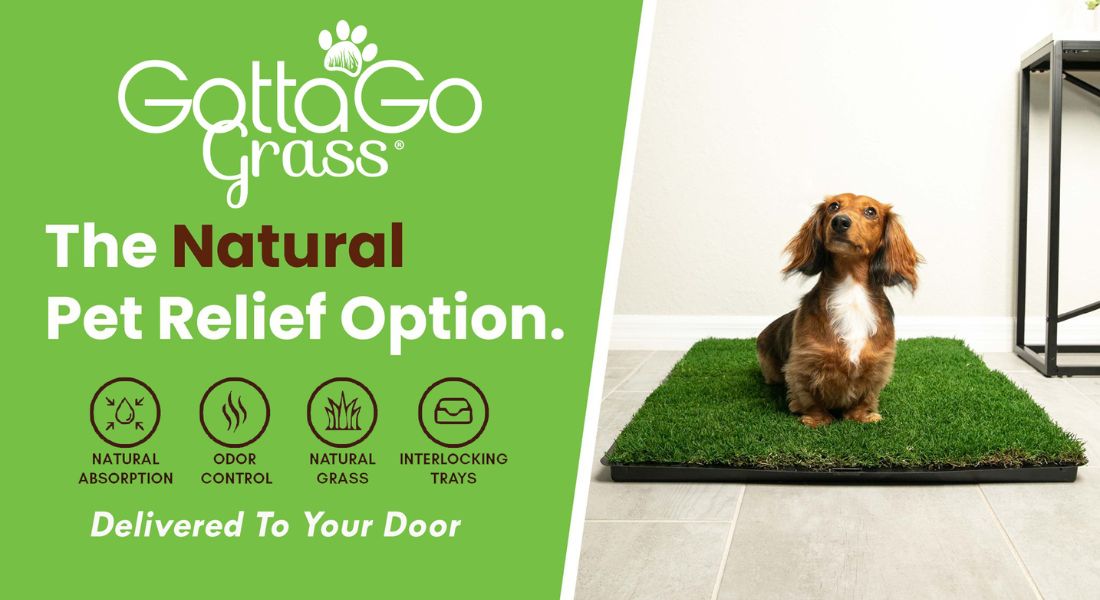
Keeping Up With Your Pet's Potty Routine with Gotta Go Grass®
No matter how often your dog goes potty, ensure your dog has a convenient bathroom solution with Gotta Go Grass® potty pads. Our natural grass pads for dogs provide a convenient indoor alternative when outdoor potty breaks are less than ideal. Made from natural grass, we offer a familiar surface for your pup to relieve themselves.
Each dog grass pee pad is naturally moisture and odor-absorbent, requiring less frequent changes and maintenance than fake grass alternatives. They are fully biodegradable and compostable, resulting in less waste than single-use pee pads and making them a more sustainable option for dog owners. Additionally, we offer waste bags and a dispenser for easy cleanup, helping you maintain a clean and sanitary environment for you and your dog.
We also offer waste bags that you can fit in a waste bag dispenser—dog-friendly solutions that allow you to maintain a clean and sanitary environment for you and your dog while minimizing your environmental impact.
Visit our website to shop for Gotta Go Grass® dog grass pee pads today!
